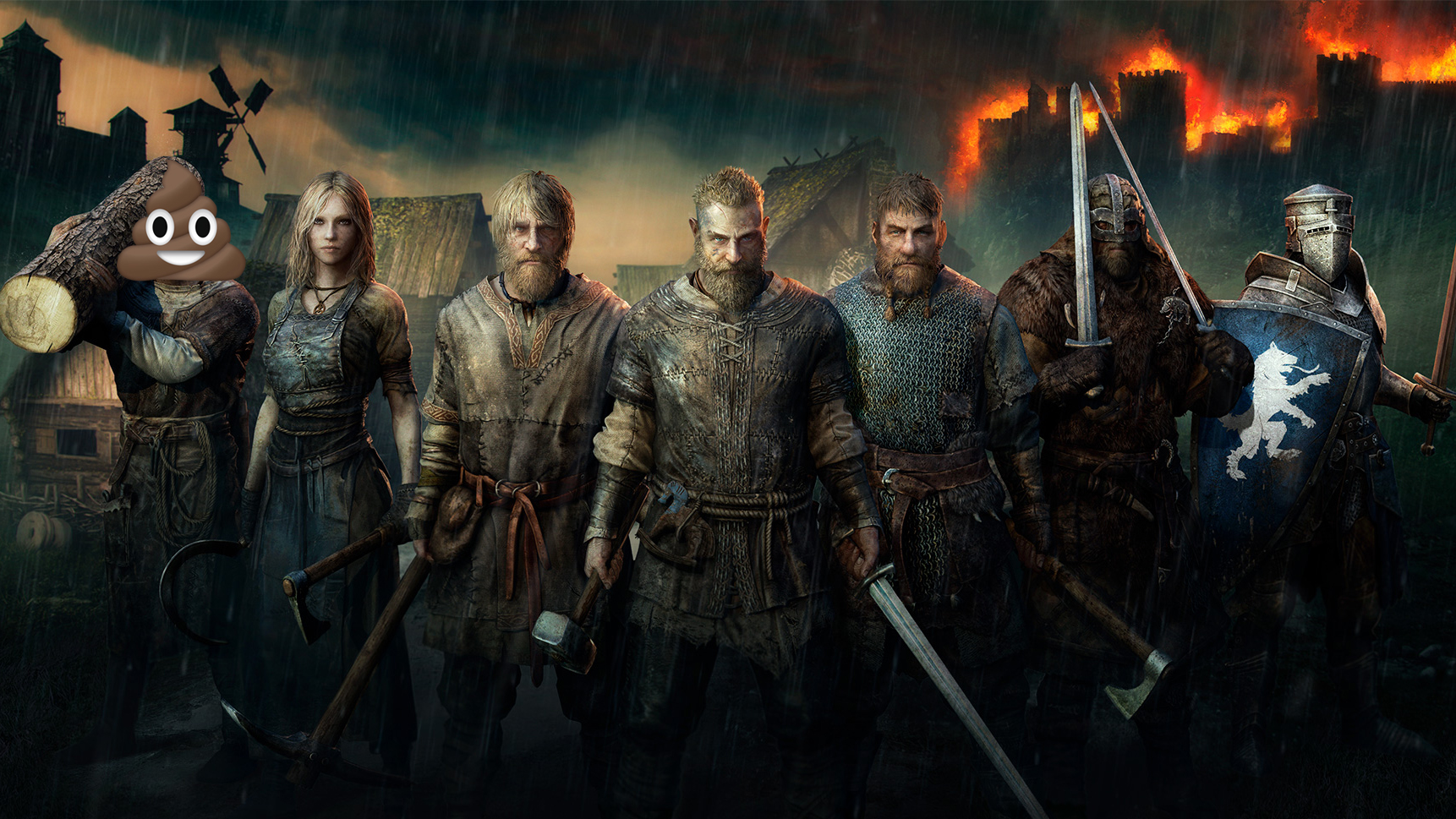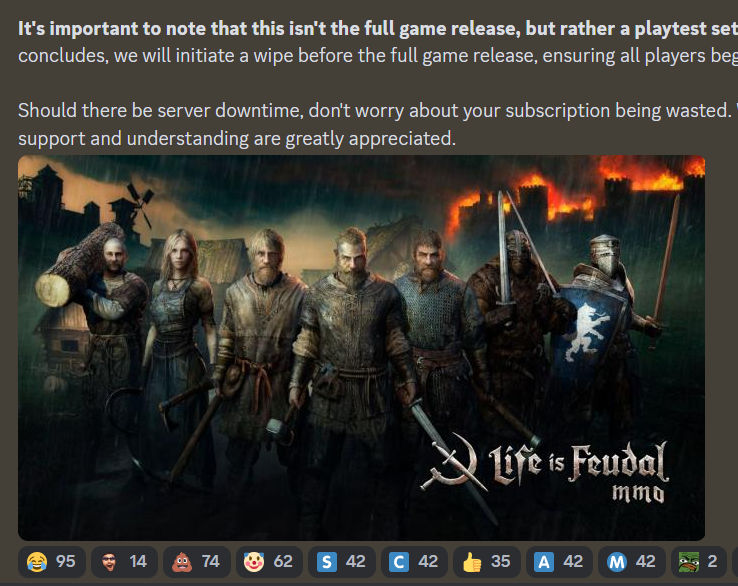The relaunch of this defunct medieval survival MMO is met with 95 cry-laugh emojis, 74 poops, 62 clowns, 42 letters spelling S-C-A-M, and 35 optimistic thumbs up
The $20 per month subscription for a playtest is really just the start of the skepticism for fans of Life is Feudal: MMO.

It's always a bummer when an MMO, or any multiplayer game, gets shut down and goes forever dark. That was the fate of medieval survival sandbox Life is Feudal: MMO, which entered early access in 2018 but closed its doors barely three years later, apparently due to financial issues and disagreements between developer Bitbox and its publisher, Xsolla.
So you'd expect hardcore fans of the realistic medieval MMO to react with joy and excitement upon hearing Life is Feudal has a new publisher that's bringing the game back. Right?
Not quite. In the official Discord, the May 30 announcement of Life of Feudal's rebirth was met with 95 cry-laugh emojis, 74 poops, 62 clowns, and a group effort to spell out the word S-C-A-M in emoji letters. To be fair, there were also 35 thumbs-ups, which I attribute to people being genuinely happy (but also maybe a few of them not reading the announcement all that closely).
So, what's the problem? Why aren't fans happy the MMO is being given new life?
First off, there's the price. Life Is Feudal's new publisher, Long Tale Games, is currently running a playtest that costs $20 to join. That doesn't feel completely out of line until you realize that's not the cost of the game, but the cost of a monthly subscription.
That's $20 per month, which is more expensive than an MMO like World of Warcraft, or Eve Online, or PC Game Pass, or any other gaming subscription around. And what you get for that price is access to a playtest. The monthly subscription is required even for people who flat-out bought the game back when it was for sale on Steam and cost anywhere between $30 and $100, depending on the version.

It isn't particularly clear what the subscriptions gives you, either. "With your subscription, you'll receive monthly bonuses and items that won't disrupt the game's balance," the announcement reads. "The longer your subscription, the more substantial these perks become. We'll provide more information about this reward system closer to the game's release."
Keep up to date with the most important stories and the best deals, as picked by the PC Gamer team.
Maybe provide that information… now? You know, while you're accepting subscriptions that cost $20 per month?
There are more red flags besides just the price. The website of the new publisher, Long Tale Games, states it is "experimenting with variants of rebuilding and relaunching games" and "employs innovative monetization strategies and groundbreaking user acquisition techniques" with a "diverse portfolio" that spans "from classic games to web3" (uh oh).
Well, that "diverse" portfolio of games currently only includes Life is Feudal: MMO, but the talk of web3, monetization strategies, and a press release that states the plan to add "a dynamic economic system" into Life is Feudal has alarm bells ringing in the Discord (and in my own head) that this is one of the many attempts at introducing the blockchain into gaming.
I even went to try to subscribe to the playtest, but it directs me to a site called called Babka. I've never heard of Babka before, but it is a "portal to secure payments across web2 and web3 in your favorite games, exclusive drops, and a revolutionary loyalty program (coming soon)." That's not really something I personally feel confident about putting $20 a month into.
It sucks when a multiplayer game closes down, and it's heartening when there's a chance it might get a new life with a new publisher. But the extreme skepticism of Life is Feudal fans, and all the indications that the MMO is going to be turned into a blockchain game… I'm not saying I agree with the Discord emojis that this is definitely a S-C-A-M, but I do have to agree with the poop emojis. Maybe try the fan-run revivals of City of Heroes or Warhammer Online instead.

Chris started playing PC games in the 1980s, started writing about them in the early 2000s, and (finally) started getting paid to write about them in the late 2000s. Following a few years as a regular freelancer, PC Gamer hired him in 2014, probably so he'd stop emailing them asking for more work. Chris has a love-hate relationship with survival games and an unhealthy fascination with the inner lives of NPCs. He's also a fan of offbeat simulation games, mods, and ignoring storylines in RPGs so he can make up his own.

